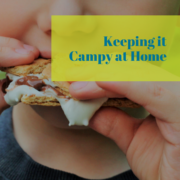When in Doubt, Talk it Out: Tips for Resolving Conflicts at Home
It’s no secret that adolescents’ emotions fluctuate—in fact, that may even be a kind understatement. Between puberty, hormones, issues with self-esteem, and peer pressure, it is no wonder why conflicts are plentiful among preteens and teenagers. As a parent, watching these melodramas escalate into full-blown conflicts can be not only difficult, but also confusing. Do I stay out of it? Do I offer advice? Is this a serious issue, or something that will blow over? What your teen really needs is an opportunity to talk it through with a willing listener.
Like many of us remember, small conflicts, whether between siblings or friends, can quickly escalate and become blown out of proportion. Our adult mindset likely wants to tell a worked-up youngster to simply calm down. However, nothing revs up adolescents like telling them to calm down…
Instead of telling your teen to “calm down,” model the appropriate behavior. Show him or her different methods for relaxing. It could be as simple as taking a quick “cool down” moment to process their emotions before reacting. Some find exercising, reading, or doodling to be therapeutic methods for redirecting negative energy. Whatever the case may be, the take-away here is that nothing good can come from impulsive, emotional reactions during a conflict. Explain that a rational discussion is always more beneficial than a heated argument.
After a chance to think through his or her emotions, ask your teen to talk out the issue. What prompted the conflict in the first place? How did communication lines get crossed? What was the other person trying to achieve in the moment? This reflective process allows teens to practice perspective-taking, a skill that is not necessarily developed until later.
Discuss how to apologize well. This is a skill that some adults still struggle with from time to time. An insincere apology is no better than no apology at all—both are equally void of any true remorse or understanding. Teach your teen the value of an apology—that even when it is hard to do, articulating remorse is a social skill that he or she will need to have developed by adulthood. Will it always come easily? No. We all have moments when our stubborn need to prove correct outweighs the desire for amity. However, ask teens what they think will be more important in the long-run. Is this conflict something that they must play out? Or, is the friendship/relationship more valuable than the desire to be “right”?
Remind adolescents that conflict resolution is not a one-size-fits-all. Depending on the person(s) involved and the circumstances attached to the disagreement, each conflict will need to be handled differently. It should also be said that conflicts are not always resolved at the drop of a hat—it is a process, one that takes time and patience on behalf of both parties. Explain that, much like any important skill, resolving a conflict is tricky, and it’s okay to stumble along the way.
By serving as a confidant and role model, you can ensure that your teen acquires the skills to assess and resolve conflicts large and small.








